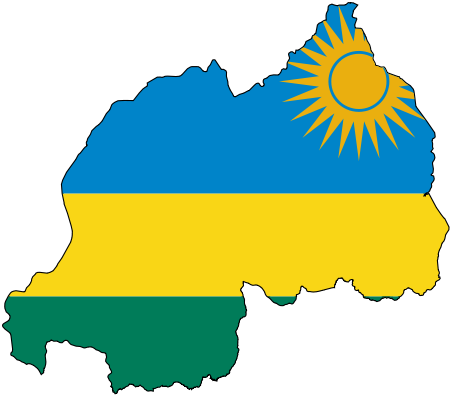Middle East Regional Cooperation (MERC)
The MERC Program is funded as assistance to promote Arab-Israeli scientific cooperation, technology-led development, and capacity building.
Emphasis is given to research and technology subjects of regional importance and relevance to the development of the Middle East and North Africa (MENA).
Benefits should target developing countries in the region and populations of limited income.
Strong, direct Arab-Israeli cooperation is required for proposals receiving funding under the MERC Program.
Involvement of U. S. partners and support for the participation of individuals or institutions from outside the Middle East and North Africa (e.g., Europe) is not a key feature of the MERC Program, but may be considered for modest roles in exceptional cases to meet an essential technical need that is not available in the region.
Applicants must be prepared to provide a well justified case for non-regional partner participation, and accept that MERC may not support the participation of any non-regional partners.The MERC Program funds peer-reviewed, collaborative, scientific research projects on development topics between Israel and its Arab neighbors across the MENA region.
As part of this Notice of Funding Opportunity (NOFO), MERC is seeking to fund proposals in the following categories:Applied research grants:
Multi-year, joint Arab-Israeli projectsContinuation grants:
Funding to extend existing or recently ended MERC awardsTravel and workshop grants:
Support for workshops, meetings, and researcher exchangePlease see full NOFO description in the Related Documents section of this listing for additional details.
Emphasis is given to research and technology subjects of regional importance and relevance to the development of the Middle East and North Africa (MENA).
Benefits should target developing countries in the region and populations of limited income.
Strong, direct Arab-Israeli cooperation is required for proposals receiving funding under the MERC Program.
Involvement of U. S. partners and support for the participation of individuals or institutions from outside the Middle East and North Africa (e.g., Europe) is not a key feature of the MERC Program, but may be considered for modest roles in exceptional cases to meet an essential technical need that is not available in the region.
Applicants must be prepared to provide a well justified case for non-regional partner participation, and accept that MERC may not support the participation of any non-regional partners.The MERC Program funds peer-reviewed, collaborative, scientific research projects on development topics between Israel and its Arab neighbors across the MENA region.
As part of this Notice of Funding Opportunity (NOFO), MERC is seeking to fund proposals in the following categories:Applied research grants:
Multi-year, joint Arab-Israeli projectsContinuation grants:
Funding to extend existing or recently ended MERC awardsTravel and workshop grants:
Support for workshops, meetings, and researcher exchangePlease see full NOFO description in the Related Documents section of this listing for additional details.
Obtain Full Opportunity Text:
https://grants.nih.gov/grants/guide/pa-files/PAR-23-027.html
Additional Information of Eligibility:
Only proposals developed jointly by Arab and Israeli investigators are accepted.
All proposals must include at least one institutional partner in Israel and one in an Arab country/territory eligible to receive U. S. foreign assistance.
Proposals involving three or more regional partners are also allowed and encouraged.
The proposal may be submitted by any party in the collaboration.
Partners may come from academic, private sector, non-governmental, or governmental institutions.Subject to change based on U. S. federal law and country-specific restrictions on funding, the following countries/territories are eligible to apply as Arab partners: Algeria, Bahrain, Kuwait, Egypt, Iraq, Jordan, Lebanon, Libya, Morocco, Oman, Qatar, Saudi Arabia, Sudan, Tunisia, United Arab Emirates, West Bank & Gaza.MERC projects involving Israel and another relatively affluent Arab country (e.g., Bahrain, Kuwait, Oman, Qatar, Saudi Arabia, and the United Arab Emirates) must include a developing country from the region as a partner and/or a beneficiary of the products and processes developed by the research in order to achieve development impact.
These affluent countries must adhere to budgetary restrictions, such as cost-sharing in support of salaries and cost of living, maintain the spirit of Arab-Israeli cooperation opposed to primarily engaging foreign expatriates, and target benefits and outcomes of the project to countries and populations of limited income.
Satellite or portal campuses of foreign (e.g., U.S., India) institutions are not considered eligible Arab partners.MERC does not encourage the involvement of U. S. partners nor participation of individuals or institutions from outside the Middle East and North Africa region (e.g., Europe).
U. S. partners may be considered for modest roles in exceptional cases to meet an essential technical need that is not available in the region.
Applicants must be prepared to provide a very well justified case for the participation of partners or individuals from outside the MENA region, and accept that MERC may not support the participation of any non-regional partners.
The use of any non-regional partner to lead or administer the overall project is discouraged.
Full Opportunity Web Address:
http://grants.nih.gov/grants/guide/pa-files/PAR-23-027.html
Contact:
Agency Email Description:
MERC Committee
Agency Email:
Date Posted:
2022-08-29
Application Due Date:
Archive Date:
2023-01-14
Social Entrepreneurship
Spotlight
Rwanda as Social Entrepreneur Fund Beneficiary

The Republic of Rwanda has been picked as one of the six African countries as beneficiaries for a new fellowship fund program designed at supporting social entrepreneurs in tackling issues on food security.
